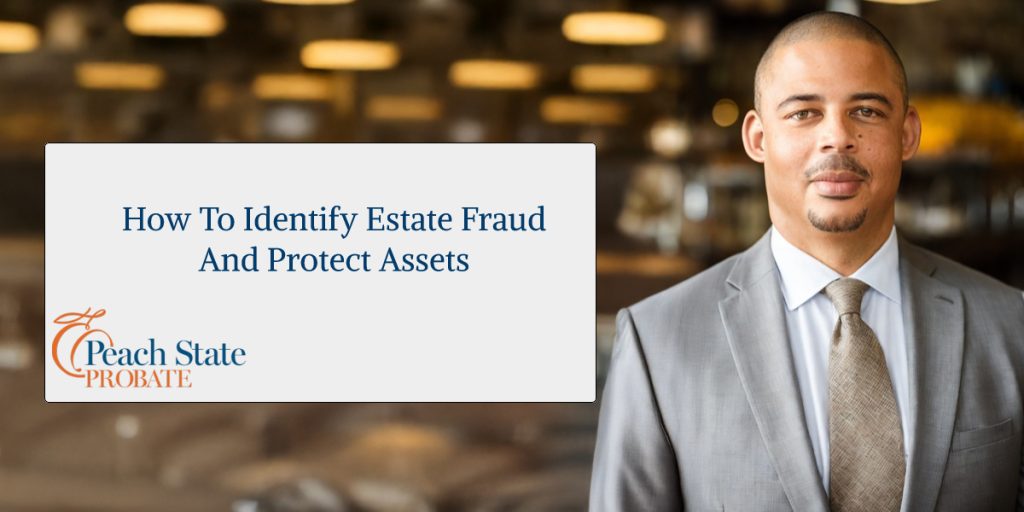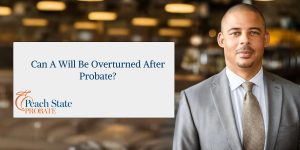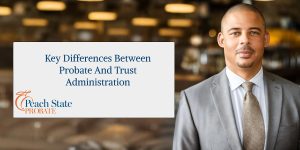## Understanding Estate Fraud: Recognizing and Safeguarding Your Assets
Estate fraud can manifest in various ways, affecting the financial interests of individuals and families. It occurs when deceitful tactics are employed to mismanage, steal, or manipulate an individual’s estate during probate proceedings or estate planning. Recognizing the signs of estate fraud is crucial for protecting both your inheritance and your loved ones’ assets. The proactive identification of such fraud is imperative to ensure that rightful heirs maintain control over assets and that they are duly safeguarded against malicious actions.
It is essential to familiarize yourself with the various types of estate fraud that can arise, including forgery, identity theft, undue influence, and misrepresentation. This knowledge lays the groundwork for meticulous estate planning and dissuades potential fraudsters from targeting you or your family. Furthermore, understanding estate fraud can empower you to make informed decisions regarding estate management, enhance communication within families about estate matters, and facilitate early detection of any irregularities.
By prioritizing awareness around estate fraud, individuals can equip themselves and their loved ones with the knowledge necessary to navigate the intricacies of estate management effectively. Taking the time to learn about estate fraud can save families from potential financial losses and emotional strain.
## The Significance of Addressing Estate Fraud
The relevance of estate fraud extends beyond mere financial loss; it touches on familial trust, emotional well-being, and the intentions of deceased individuals regarding their legacy. As families face the disruption that can accompany the loss of a loved one, the last thing they need is an additional burden caused by fraudulent activities related to the estate. The impacts of estate fraud can be long-lasting and can create rifts in families as disputes arise over distribution and rights to assets.
Additionally, estate fraud can lead to significant legal complexities, resulting in prolonged disputes, litigation costs, and drawn-out processes that hinder families’ ability to settle estates efficiently. Recognizing the devastating effects that estate fraud can have— emotionally, financially, and socially— underlines the necessity of vigilance in estate management.
Educating yourself and your family about the implications of estate fraud not only protects current assets but also preserves the memory and intentions of the decedent. It ensures that the legacy they intended to leave behind remains intact and respected.
## Establishing a Legal Framework Against Estate Fraud
The legal framework surrounding estate fraud includes various laws and regulations designed to protect individuals and their assets from fraudulent schemes. Under Georgia law, estate fraud may involve civil and criminal penalties, depending on the nature of the offense. The law provides remedies for victims of fraud, such as recovery of lost assets, attorney fees, and in some cases, punitive damages to deter future offenses. Familiarizing oneself with these laws is beneficial, as it can provide avenues for legal recourse if fraud is discovered.
The probate process in Georgia also includes specific safeguards designed to detect and deter fraud. For example, any will submitted for probate is subject to scrutiny, and beneficiaries or interested parties can challenge a will’s validity if they suspect fraud—such as forgery or undue influence. If an estate is settled in probate court, there are procedural checks to investigate allegations of fraudulent activities that may arise.
However, understanding the nuances of the legal landscape surrounding estate fraud requires consultation with knowledgeable legal professionals. They can explain the complexities of estate laws in Georgia and assist in developing preventive measures and strategies to combat potential fraud.
## Real-Life Incidents of Estate Fraud: Awareness through Examples
Real-world instances of estate fraud bring to light the grim realities families can face. From forged documents mimicking the decedent’s will to coercion of the elderly resulting in improper asset transfers, the spectrum of possible fraud is diverse and troubling. In one high-profile case, a family’s estate was almost entirely siphoned away by a trusted caregiver who manipulated financial documents to secure control over valuable assets. The estate’s heirs were blindsided, facing not only financial loss but a complicated legal battle as they sought to recover what was taken.
Another common scenario involves disputes over undue influence, where unscrupulous individuals exert emotional or psychological pressure on vulnerable beneficiaries to gain access to their assets. Such instances often occur in families where one sibling may isolate a parent or elder relative, ensuring that their wishes are manipulated in favor of the influencer. This creates an imbalance in the distribution of assets and engenders family conflict.
Through these examples, the reality becomes stark—estate fraud is prevalent, and often, the most unexpected people (trusted family members or caregivers) may be involved. Raising awareness through such narratives can instill diligence within families and encourage discussions about estate planning and potential safeguards.
## Protective Measures: Steps to Guard Against Estate Fraud
Taking proactive measures to prevent estate fraud is essential in safeguarding your assets. One of the first steps is to maintain transparency in financial practices. By involving family members, clearly communicating intentions, and discussing plans openly, you can help deter potential fraudulent actions and ensure everyone is informed. Regular family meetings can also facilitate a culture of openness, where concerns about estate management can be addressed collectively.
Another protective measure involves conducting thorough due diligence on individuals who are involved in managing your estate. Hiring reputable financial advisors, attorneys, and estate planners who have a proven track record is fundamental. It is critical that these individuals carry a fiduciary duty to act in your best interest and are vetted for integrity and transparency.
Finally, creating secure legal documents, such as revocable living trusts, can serve as a protective layer against potential fraud. This kind of planning can provide specific guidelines on asset distribution, making it more challenging for would-be fraudsters to act unscrupulously. Establishing clear terms within these documents ensures that your legacy reflects your true wishes.
## Avoiding Common Pitfalls: Mistakes That Can Enable Estate Fraud
Awareness of common mistakes can help prevent the facilitation of estate fraud. One prevalent error is neglecting to update estate documents following significant life changes. Whether it be marriage, divorce, or the birth of a child, these milestones necessitate revisions to wills, trusts, and beneficiary designations. Failing to make these adjustments can leave your estate vulnerable to claims from unintended beneficiaries or those who may no longer have a rightful claim.
Another common misstep involves underestimating or overlooking the importance of regular audits and reviews of estate documents and finances. Without ongoing oversight, it’s possible for fraudulent activities to go unnoticed over time. Implementing a structured approach to routinely assess your estate may illuminate any discrepancies before they escalate into more severe issues.
Lastly, placing too much trust in a single individual—be it a family member or a financial advisor—can also pave the way for fraud. It is vital to maintain a system of checks and balances, ensuring that decisions regarding your estate are made with consensus or thorough consultation with multiple trusted individuals. By avoiding these pitfalls, you significantly reduce the risk of fraudulent actions against your estate.
## Knowing When to Seek Legal Counsel: Timing is Everything
Navigating the complexities surrounding estate fraud may require professional legal advice. Detecting subtle signs of mishandling or manipulation within an estate often necessitates an experienced attorney’s guidance. If you suspect that a loved one is exhibiting irregular behaviors concerning their estate or if you are faced with obfuscation during the probate process, consulting with a legal professional promptly can equip you with the necessary resources for action.
It is also advisable to reach out for legal counsel when establishing your estate plan. A seasoned attorney can help you avoid loopholes that fraudsters might exploit, ensuring that documents are watertight and comply with local regulations. Additionally, they can provide valuable advice on how to communicate your intentions effectively among family members, which is key in mitigating potential disputes.
Lastly, if estate fraud has already occurred and your assets have been compromised, reaching out to an attorney who specializes in probate and estate law is essential. They can initiate the recovery process, guide you on legal remedies, and represent your interests vigorously in court, should litigation become necessary.
## Advantages of Legal Representation in Estate Matters
Engaging a legal professional for estate matters offers a range of benefits, especially when it comes to preventing and addressing estate fraud. Attorneys bring substantial knowledge of the laws governing estates and can effectively navigate the legal complexities involved in the probate process. They can help uncover potential weaknesses in your estate plan that may be susceptible to fraud, ensuring that measures are in place to safeguard against it.
Furthermore, an attorney can serve as an objective third party, assisting families during emotional conversations that often arise in estate planning. When disagreements occur, having a legal representative to mediate can ease tensions and facilitate constructive dialogue towards solutions.
In the event that fraud is detected, the immediate involvement of an experienced attorney can be the difference between recovering lost assets or experiencing prolonged disputes. They will have the tools and resources necessary to address fraudulent activities swiftly, ensuring that your estate and its intended beneficiaries are safeguarded.
## How Peach State Probate Provides Unparalleled Support
Choosing Peach State Probate means aligning with a law firm committed to safeguarding your assets and advocating for your best interests in estate matters. With a wealth of knowledge in Georgia estate law, the firm excels in detecting potential risks that may give rise to estate fraud and provides individualized strategies to address these concerns. Their comprehensive approach ensures that estate plans are thoroughly evaluated, minimizing vulnerabilities.
Peach State Probate prides itself on fostering open communication with clients, ensuring that every concern is addressed and every question answered. By building strong relationships founded on trust, the firm works diligently to create tailored estate plans that align with familial values and individual aspirations. They prioritize transparency and honesty in all dealings, making them a reliable partner in the complex process of estate management.
Moreover, should estate fraud occur, Peach State Probate’s experienced attorneys bring swift action to the table. Their team is skilled in identifying fraudulent activities and employing effective legal strategies to mitigate loss. With a laser focus on achieving favorable outcomes for clients, they stand as your steadfast ally in navigating the intricacies of estate matters in Georgia.
## Frequently Asked Questions About Estate Fraud




